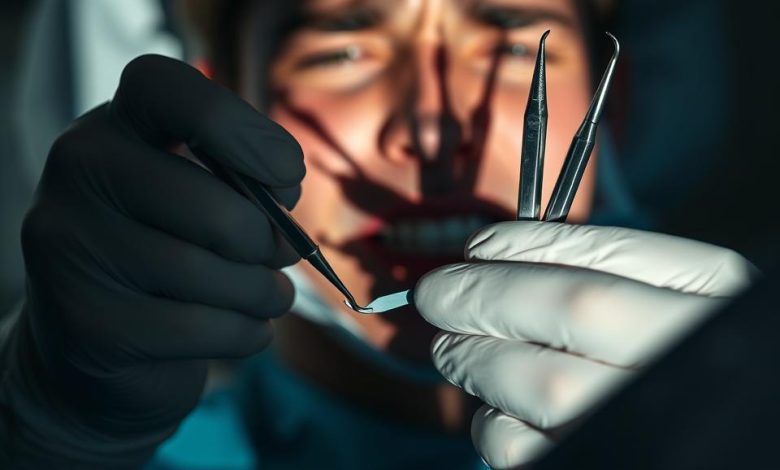
When a dental procedure goes wrong, it can lead to significant pain, additional medical expenses, and lost income. In such cases, understanding your rights and the process for filing dental negligence claims is crucial. If you’ve experienced dental malpractice, you may be entitled to compensation. The negligence claims process can be complex, involving detailed legal and medical assessments. Our article will guide you through the essential steps of filing a claim, helping you protect your rights and recover damages.
Key Takeaways
- Understanding the process of dental negligence claims
- Recognizing the signs of dental malpractice
- Knowing your rights and entitlements
- Steps to file a negligence claim
- Importance of seeking professional legal help
Understanding Dental Negligence Claims
Navigating the legal landscape of dental negligence claims requires a clear understanding of what constitutes negligence in dental practice. Dental negligence occurs when a dentist or dental professional fails to provide the standard of care expected, resulting in harm or injury to the patient.
Read More:- Insuring Your Rental Property: Protect Your Investment
What Constitutes Dental Negligence
Dental negligence can manifest in various forms, including misdiagnosis, improper treatment, or failure to inform patients about potential risks and complications. Examples include performing unnecessary procedures, causing nerve damage, or failing to diagnose oral diseases. To constitute negligence, it must be proven that the dental professional breached their duty of care and directly caused harm to the patient.
Common Types of Dental Malpractice
Common types of dental malpractice include:
- Incorrect diagnosis or failure to diagnose conditions like oral cancer or gum disease.
- Complications from unnecessary or improperly performed procedures.
- Nerve damage resulting from improper administration of anesthesia or during surgical procedures.
These cases often require expert testimony to establish the standard of care and how it was breached.
Statute of Limitations for Filing Claims
The statute of limitations for dental negligence claims varies by state, typically ranging from 2 to 3 years from the date of the incident or discovery of the negligence. It’s crucial to consult with an attorney promptly to ensure timely filing and to avoid being barred from seeking compensation.
How to File a Dental Negligence Claim
To successfully file a dental negligence claim, it’s essential to follow a structured approach. This involves several key steps that can significantly impact the outcome of your case.
Gathering Evidence for Your Case
Gathering comprehensive evidence is crucial for building a strong dental negligence claim. This includes collecting all relevant dental records, medical bills, and any other documentation related to your treatment and the negligence you experienced.
Key evidence may include:
- Dental records and X-rays
- Medical bills and receipts
- Photographic evidence of your injury
- Witness statements
Finding a Qualified Dental Malpractice Attorney
Finding an attorney who specializes in dental malpractice is vital. Look for someone with a proven track record in handling similar cases and who can provide expert guidance throughout the process.
The Legal Process and Timeline
The legal process for filing a dental negligence claim involves several stages, including filing a complaint, discovery, and potentially going to trial. Understanding the timeline and what to expect at each stage can help manage your expectations.
| Stage | Description | Timeline |
|---|---|---|
| Filing a Complaint | The initial step is where the claim is filed with the court. | 1-3 months |
| Discovery | Both parties exchange information and evidence. | 3-6 months |
| Trial | The case is presented in court. | 6-12 months |
Determining Potential Compensation
Compensation for dental negligence can include both economic and non-economic damages. Understanding the difference is crucial for determining the potential value of your claim.
Economic Damages
Economic damages cover financial losses such as medical expenses, lost wages, and other out-of-pocket costs related to the negligence.
Non-Economic Damages
Non-economic damages compensate for pain, suffering, and emotional distress caused by the negligence.
Conclusion
Understanding dental negligence claims is crucial for individuals who have suffered due to substandard dental care. By recognizing the signs of dental malpractice and knowing the process of filing a claim, you can protect your legal rights and potentially recover damages.
Dental negligence claims can arise from various forms of malpractice, including misdiagnosis, improper treatment, or surgical errors. If you have experienced any of these, it is essential to seek legal counsel to navigate the complexities of dental negligence claims.
Recovering damages for dental negligence requires a thorough understanding of the legal process and the evidence needed to support your claim. By working with a qualified dental malpractice attorney, you can ensure that your legal rights are protected and that you receive the compensation you deserve.
In conclusion, being informed about dental negligence claims and the process of recovering damages is vital for protecting your legal rights. Take the necessary steps to understand your options and seek professional help to ensure you receive the justice you deserve.
FAQ
What is considered dental negligence?
Dental negligence occurs when a dental professional fails to provide the standard of care expected, resulting in injury or harm to the patient.
How long do I have to file a dental negligence claim?
The statute of limitations for filing a dental negligence claim varies by state, typically ranging from one to three years from the date of the incident or discovery of the injury.
What types of damages can I recover in a dental negligence claim?
You may be able to recover economic damages, such as medical expenses and lost wages, as well as non-economic damages, including pain and suffering, emotional distress, and loss of enjoyment of life.
How do I prove dental negligence?
To prove dental negligence, you will need to gather evidence, including medical records, witness statements, and expert testimony, to demonstrate that the dental professional breached the standard of care and caused your injury.
Can I file a dental negligence claim without a lawyer?
While it is possible to file a claim without a lawyer, it is highly recommended to seek the assistance of a qualified dental malpractice attorney to ensure you receive fair compensation.
What should I look for when hiring a dental malpractice attorney?
When hiring a dental malpractice attorney, look for experience in handling similar cases, a strong track record of success, and a clear understanding of your rights and options.
How long does it take to resolve a dental negligence claim?
The length of time it takes to resolve a dental negligence claim can vary significantly, depending on the complexity of the case, the amount of evidence, and the negotiation process.









